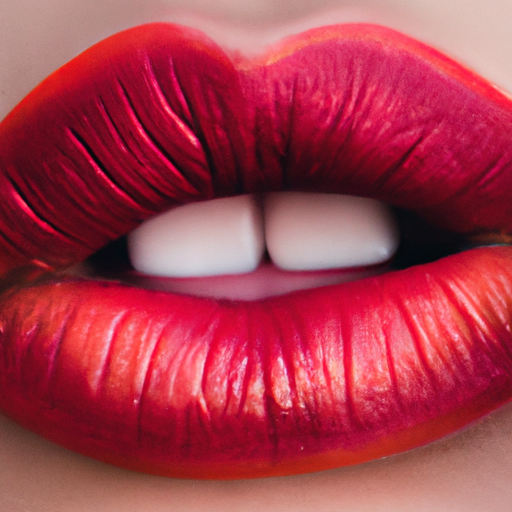As a medical professional, I often encounter patients who complain about the discomfort and embarrassment of chapped lips. This seemingly trivial condition can be a source of significant distress, especially during the winter months. However, the causes of chapped lips are not as straightforward as they might seem. Let’s unmask the culprits and unravel the mystery behind this common problem.
Chapped lips, medically known as cheilitis, is a condition where the lips become dry, cracked, and sore. It’s a universal issue that affects people of all ages and genders. The primary culprit behind chapped lips is environmental factors, particularly exposure to cold, dry air. When the temperature drops, the humidity level also decreases, leading to dryness in the air. This dry air can strip away the natural moisture from your lips, causing them to become parched and cracked.
Another significant factor contributing to chapped lips is dehydration. Our bodies require an adequate amount of water to function properly, including maintaining the health of our skin and lips. When we’re dehydrated, our bodies pull water from non-essential areas, like our lips, to preserve vital organs. This can result in dry, chapped lips.
Moreover, certain lifestyle habits can exacerbate the problem. For instance, licking your lips may provide temporary relief from dryness but it ultimately worsens the condition. The saliva evaporates quickly, leaving your lips drier than before. Similarly, smoking and excessive caffeine or alcohol consumption can also contribute to lip dryness.
Certain medications can also be blamed for chapped lips. Drugs like retinoids, certain chemotherapy medications, and even high doses of vitamin A can cause lip dryness as a side effect. Furthermore, some people may experience chapped lips as a symptom of underlying health conditions such as thyroid disease, diabetes, or even certain types of anemia.
While these are the most common culprits behind chapped lips, it’s important to note that everyone’s body is different. What causes chapped lips in one person may not be the same for another. Therefore, it’s crucial to pay attention to your body and its reactions to different environments and substances.
Now that we’ve unmasked the culprits, let’s discuss some remedies. The first line of defense against chapped lips is to keep them moisturized. Use a good quality lip balm that contains ingredients like beeswax, shea butter, or petroleum jelly. These ingredients create a protective barrier on your lips, preventing moisture loss.
Staying hydrated is equally important. Make sure you’re drinking enough water throughout the day. Also, consider using a humidifier in your home or office to counteract the effects of dry air.
Avoid licking your lips and if you’re a smoker, consider quitting. Not only will this improve the health of your lips, but it will also have numerous other health benefits.
Lastly, if you notice that your lips are persistently dry and chapped despite your best efforts, it may be time to consult a healthcare professional. Persistent chapped lips could be a sign of an underlying health condition that needs medical attention.
In conclusion, chapped lips are a common problem with a multitude of potential causes. By understanding these culprits and taking appropriate steps to counteract them, you can keep your lips healthy and comfortable all year round.



